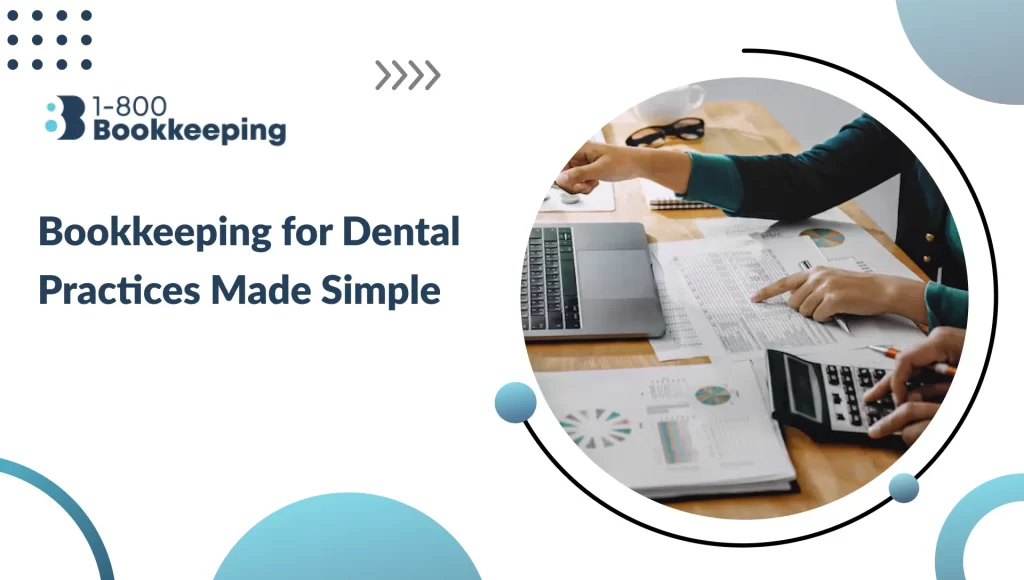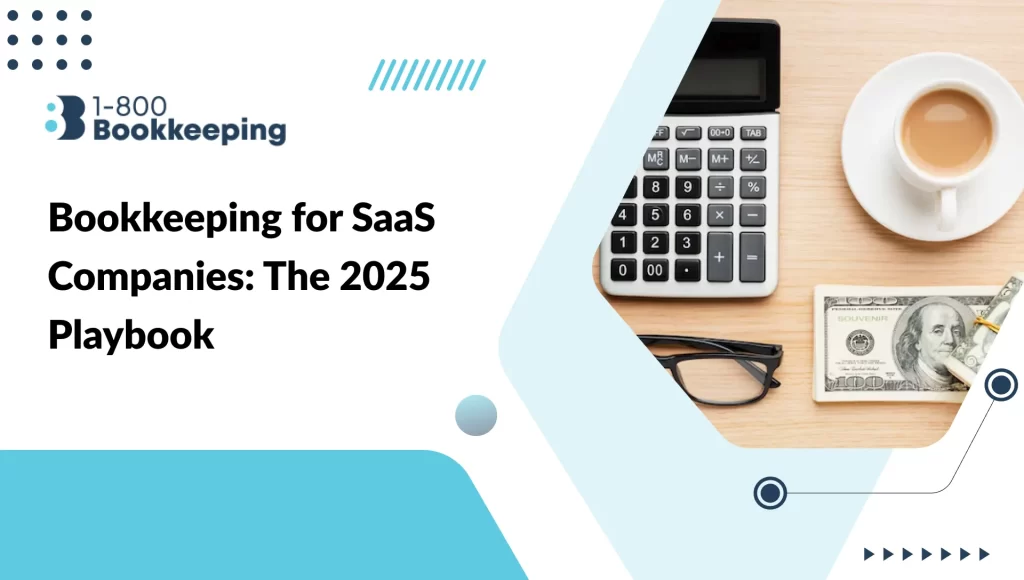Bookkeeping for dental practices sits at the core of every thriving clinic. Accurate ledgers show which procedures earn, where cash leaks, and how to fund the next operatory without sleepless nights. This guide breaks the process into practical steps that any dentist or office manager can follow.
Introduction to Dental Practice Bookkeeping
A dental office juggles patient care, insurance claims, and a steady flow of supplies. Proper bookkeeping turns that swirl into clear numbers. You see revenue per chair, lab costs per crown, and whether hygiene recalls cover payroll. In short, bookkeeping tells the business story behind every smile and lets you plan the next one with confidence.
The Importance of Accurate Bookkeeping in Dental Practices
Precise records protect profit margins, speed loan approvals, and reduce audit headaches. They support treatment plan financing and boost practice value when you decide to sell. Dentists who track income and expenses in real time spot trends early and make sharper decisions about staffing, marketing, and equipment.
Our Services at 1 800 Book Keeping
Running ledgers while drilling and filling drains energy. At 1 800 Book Keeping, our dental bookkeeping specialists plug directly into your practice management software and handle everything from daily payment posting to monthly KPI dashboards. Clients gain clear numbers, fewer claim headaches, and more chair time. Explore our monthly bookkeeping plans. For practices behind on records, our catch up bookkeeping team can close years of gaps in weeks. When you want to talk, book a quick consult through our contact page.
Common Financial Challenges Faced by Dentists
Dental entrepreneurs battle claim delays, steep equipment costs, and seasonal dips. Missed write offs and inconsistent fee schedules chip away at net income. Without a strong system, even busy practices bleed cash. Solid bookkeeping catches the leaks before they drown growth.
Setting Up Your Dental Practice’s Financial Infrastructure
A strong foundation starts with clear roles. Decide who invoices, who reconciles, and who reviews monthly statements. Segregation of duties curbs fraud and keeps errors from hiding.
Establishing a Dental Specific Chart of Accounts
Group income by procedure codes such as hygiene, restorative, and orthodontics. Create expense buckets for supplies, lab fees, sterilization, and marketing. This structure makes tax time faster and KPI tracking easier.
Choosing the Right Accounting Software for Your Practice
Look for cloud platforms that integrate with your practice management system. QuickBooks Online, Xero, and Sage all sync with dental PMS add ons, saving hours of duplicate entry and giving owners live financial dashboards.
Integrating Dental Practice Management Software with Accounting Tools
Bridge platforms like Dentrix or Open Dental with your ledger. Automated sync pushes daily production, adjustments, and collections straight into the books. That link slashes manual errors and frees your team for patient care.
Daily and Weekly Bookkeeping Tasks
Strong habits keep ledgers fresh and accurate.
Recording Patient Payments and Insurance Reimbursements
Post patient copays the day they arrive. Record insurance explanations of benefits as soon as they clear. Timely posting keeps accounts receivable honest and shows the true cash picture.
Managing Accounts Receivable and Payable
Run aging reports every week. Follow up on claims past 30 days and send friendly reminders to slow payers. On the payable side, schedule vendor bills to match cash flow peaks, usually the week after hygiene recall runs.
Reconciling Bank and Credit Card Statements
Daily bank feeds catch overdrafts before they bite. Weekly credit card reconciliation spots fraudulent charges fast and confirms that every supply order reached the right general ledger account.
Monthly and Quarterly Financial Management
Routine reviews turn data into strategy.
Preparing Financial Statements: Balance Sheet, Income Statement, and Cash Flow Statement
Use month end close to reconcile every account. Then review your profit and loss to see production by provider and procedure. Compare net cash flow to loan payments and expansion plans.
Budgeting and Forecasting for Dental Practices
Create rolling twelve month forecasts. Plug in hygiene recall cycles, insurance fee schedules, and planned equipment upgrades. Budgets guide hiring decisions and marketing spend.
Monitoring Key Performance Indicators (KPIs) Specific to Dentistry
Track production per hour, collection percentage, chair occupancy, and hygiene reappointment rate. Benchmarks from the American Dental Association provide solid targets that help you measure progress.
Managing Dental Practice Expenses
Costs can balloon fast without guardrails.
Tracking Equipment Purchases and Depreciation
High ticket gear such as CBCT scanners and sterilizers qualifies for Section 179 deductions. Keep a fixed asset log with purchase date, cost, and useful life so your CPA can maximize write offs.
Managing Payroll and Employee Benefits
Payroll often tops twenty five to thirty percent of collections. Use time tracking software and compare hours to chair occupancy. Offer benefits that retain hygienists without crushing margins.
Controlling Overhead Costs and Identifying Cost Saving Opportunities
Negotiate bulk rates on gloves and composite. Review lab invoices quarterly. Small tweaks compound into big savings and improve cash flow.
Tax Planning and Compliance
Dental taxes carry unique wrinkles.
Understanding Tax Obligations for Dental Practices
Most practices operate as S corps or LLCs. Federal, state, and payroll taxes all apply. The IRS dental practice guide outlines common deductions and filing deadlines.
Maximizing Deductions and Credits Specific to Dentistry
Write off continuing education courses, scrubs, and even in office whitening kits used for demos. Keep receipts and document business purpose so every deduction stands up in an audit.
Preparing for Year End Tax Filing
Close books by January fifteen. Provide 1099 forms to contract hygienists. Meet with your CPA early to avoid extension fees and to plan equipment purchases that lower taxable income.
Leveraging Technology in Dental Bookkeeping
Digital tools sharpen accuracy and cut labor.
Benefits of Cloud Based Accounting Systems
Access ledgers anywhere, grant auditors read only access, and automate backups. Cloud platforms update automatically and protect data with bank grade encryption.
Automating Routine Bookkeeping Tasks
Bank feeds, rules based categorization, and recurring journal entries shrink data entry to minutes and reduce errors.
Ensuring Data Security and Compliance with HIPAA Regulations
Encrypt drives, use two factor authentication, and limit patient health information exposure in accounting files. Choose vendors that sign business associate agreements and follow strict security protocols.
Best Practices for Dental Bookkeepers
Solid habits build financial health.
Maintaining Accurate and Timely Records
Enter data daily. Reconcile weekly. Review monthly. Consistency keeps surprises away and makes tax season calm.
Implementing Internal Controls to Prevent Fraud
Separate collection, posting, and reconciliation duties. Rotate staff who handle cash. Spot check adjustment logs and refund reports to discourage theft.
Regularly Reviewing Financial Reports with Stakeholders
Share KPIs with associates and office managers. Transparency drives accountability and motivates the team to hit production goals.
Common Mistakes to Avoid
Dentists can trip over these pitfalls.
Mixing Personal and Business Finances
Run all practice income and expenses through a dedicated account. Personal draws should follow a set schedule so owners do not starve the practice of working capital.
Neglecting Regular Reconciliation of Accounts
Unreconciled ledgers breed hidden losses and Internal Revenue Service red flags. Reconcile often and investigate any mystery entries.
Overlooking the Importance of Cash Flow Management
Profits on paper do not pay supply invoices. Monitor cash daily and build a reserve equal to one month of operating expenses.
Conclusion
Effective bookkeeping keeps drills whirring and profits humming. Solid records guide hiring, gear upgrades, and expansion into new operatories. Dentists who pair disciplined in house processes with expert support spend less time crunching numbers and more time creating healthy smiles. Tap the right tools, follow the habits above, and your practice finances will shine.
Feeling Overwhelmed by Bookkeeping? We Can Help.
Running a business is demanding, and keeping track of your finances can be a never-ending chore. Many business owners need help with the complexities of bookkeeping, which can leave them frustrated and behind.
1-800 Bookkeeping offers expert services to streamline your financial processes and empower you to make informed decisions.
Our team of seasoned professionals understands the unique challenges businesses of all sizes face. We can help you:
Free Up Valuable Time: Offload your bookkeeping tasks to our dedicated professionals.
- Gain Peace of Mind: Ensure your financial records are accurate and up-to-date.
- Make Smarter Decisions: Get actionable insights into your business performance through clear and concise reports.
- Feel Confident: Make informed financial decisions based on reliable data.
Don’t let bookkeeping hold you back from achieving your business goals. Contact 1-800 Bookkeeping today for affordable bookkeeping solutions.
FAQs
1. How often should a dental practice reconcile accounts? Weekly reconciliation catches errors early and keeps cash flow honest.
2. Which KPIs matter most for a solo dentist? Focus on production per hour, collection percentage, and hygiene reappointment rate.
3. Can I deduct new dental chairs in one year? Yes, Section 179 lets you expense up to 1,220,000 dollars of qualifying equipment in 2025.
4. What accounting software pairs best with Dentrix? QuickBooks Online syncs smoothly via third party connectors, cutting duplicate entry.
5. Do I need a separate account for lab fees? Yes. A dedicated lab expense account clarifies margins on restorative work.





